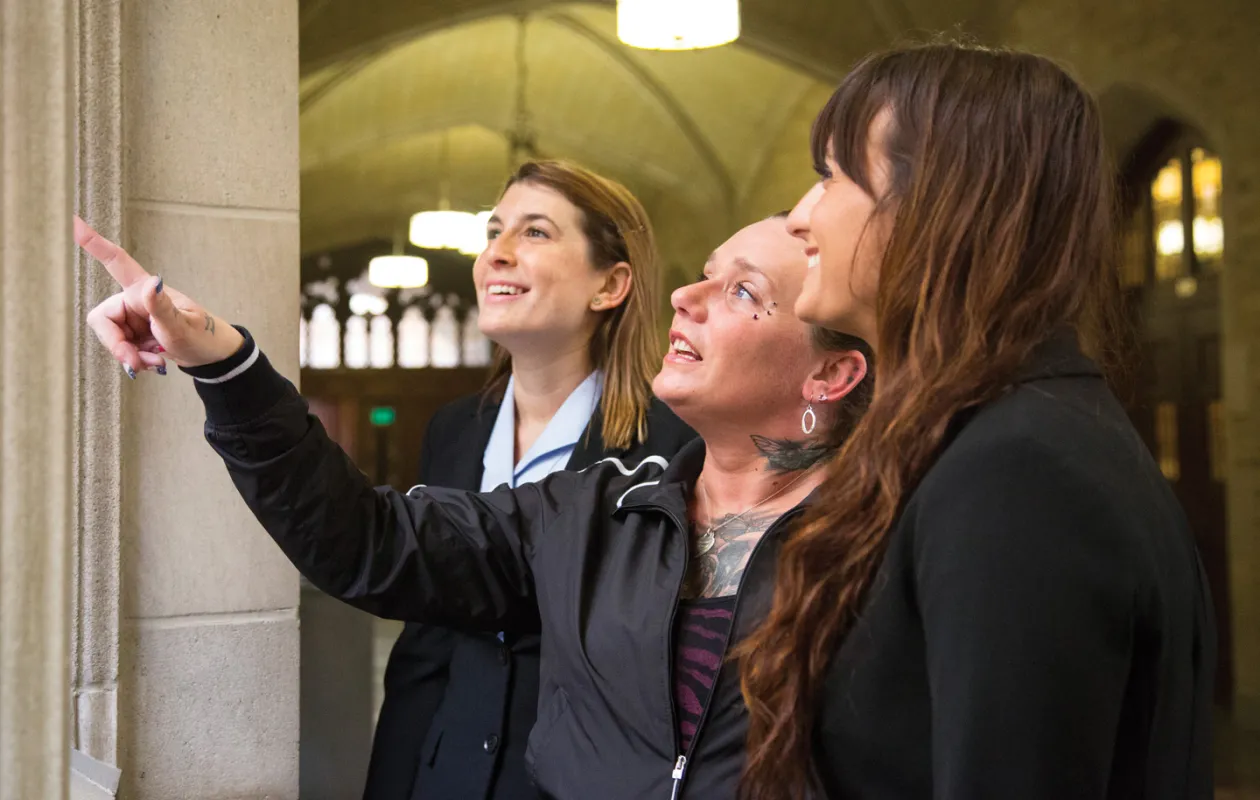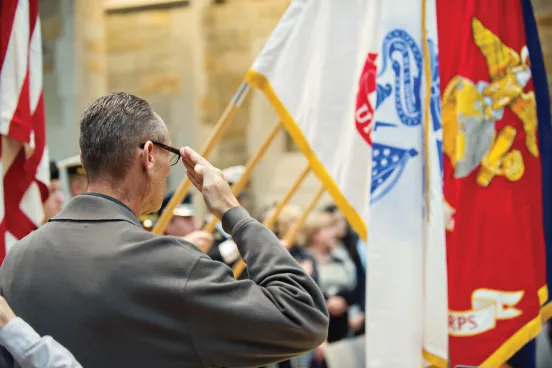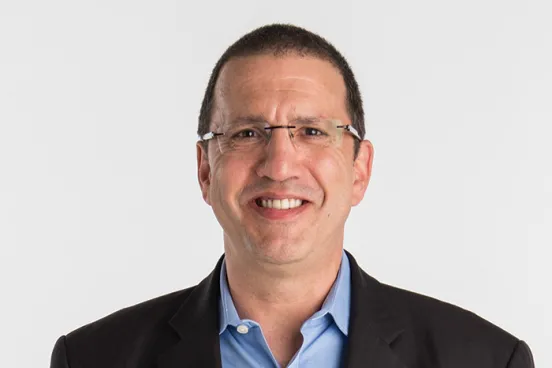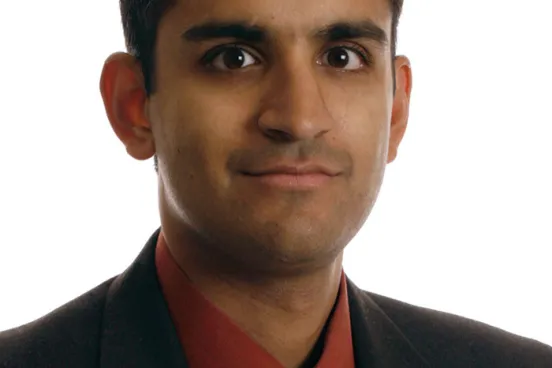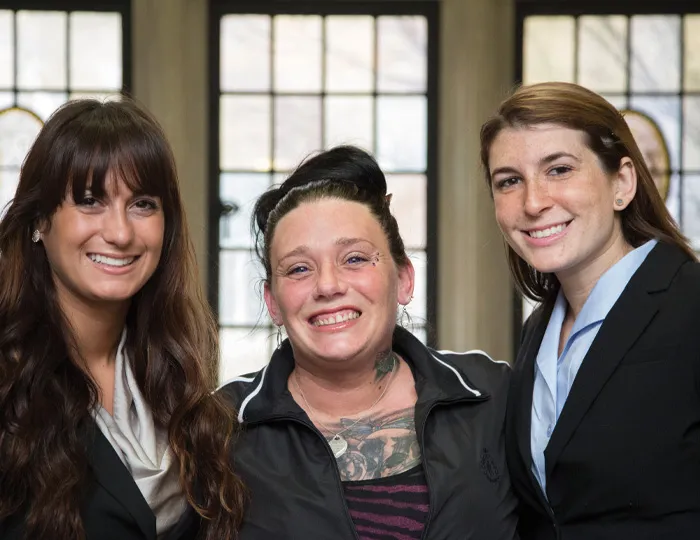
Not many things had gone Ashley’s way for much of her adult life. Her now ex-husband beat her, threw vacuum cleaners at her, pushed her off the porch in front of family members, wouldn’t allow her to have friends. She wore long sleeves to one of her baby showers, in June, to hide her bruises.
About six years into the marriage, she’d had enough. She reported her husband’s violence and got a restraining order against him. In 2012, he was sentenced to up to four years as a habitual felony offender, and Ashley divorced him and gained full custody of their four children.
Still, she knew he wouldn’t be locked up forever.
“I didn’t want to worry about him getting out of prison and trying to see the kids,” Ashley said. “I needed to know I had done everything I could do to keep them safe.”
In 2014, she sought the help of Michigan Law’s Child Advocacy Law Clinic (CALC).
The two students assigned to her case, Dani Angeli and Alanna Farber, were struck by how much Ashley had suffered but also by her resilience. They began working toward terminating Ashley’s ex-husband’s parental rights.
They researched, wrote, filed a private petition to terminate his parental rights—but they did not think they would be able to see the case through to completion. Both students had 2L summer jobs, and Ashley was given the option of working with two new students. But she decided to wait until they returned as 3Ls in fall 2015.
“I didn’t want to work with anyone other than Dani and Alanna,” Ashley said. “I could have been just another client to them and to [clinic administrator Jackie Julien], but they were so supportive and cared so much about my family and me. They really became part of our family.”
Working as advanced CALC students, Angeli and Farber prepped Ashley for trial and contacted potential witnesses. CALC Director Vivek Sankaran, ’01, “gave us a lot of autonomy,” Angeli said, but also guided them throughout the process.
“Vivek was so amazing,” Farber said. “He taught us as we went, and he reminded us to keep it simple”—for example, don’t call three doctors as witnesses when you really only need one. “He repeated over and over, ‘You want to call them as witnesses, but what would they add?” Farber recalled.
Both students also said the Evidence class taught by Professor Eve Brensike Primus, ’01, helped them immeasurably as they prepared for trial.
In October 2015, the case went to a bench trial in Washtenaw County. The students represented Ashley, while a guardian ad litem represented her four children, who were all younger than 10 years old and who all wanted their father’s parental rights terminated as well.
Ashley was their first and longest witness; she recounted the horrors of her marriage to her ex-husband, and spoke about her fears for herself and her children. Her general practitioner testified about her broken ribs and a miscarriage that resulted from abuse.
Angeli and Farber also called Ashley’s ex-husband as a witness.
“It was a risk,” Angeli said, “but ultimately a good decision.” They were able to admit his 18 convictions, many of which were for violent crimes. “He was pretty good on the stand. His argument was that he’s changing,” Farber said.
His argument did not sway the Hon. Timothy P. Connors, who, in a long oral opinion that favored Ashley and the children, said he could see the ex-husband’s anger coming through.
The experience solidified the career plans of both Angeli and Farber, who want to do trial work and victim advocacy. Both are clerking next year and hope to work in prosecutor or state attorney general offices.
“Throughout my whole career,” Angeli said, “I will always remember her and her family. She’s the embodiment of what a survivor is.”
Ashley knows she and her family still face some risks, especially once her ex-husband is released this spring, but the successful termination of his parental rights has been liberating.
“It is like waking up every day with a breath of fresh air,” Ashley said, “and a sense of peace.”


